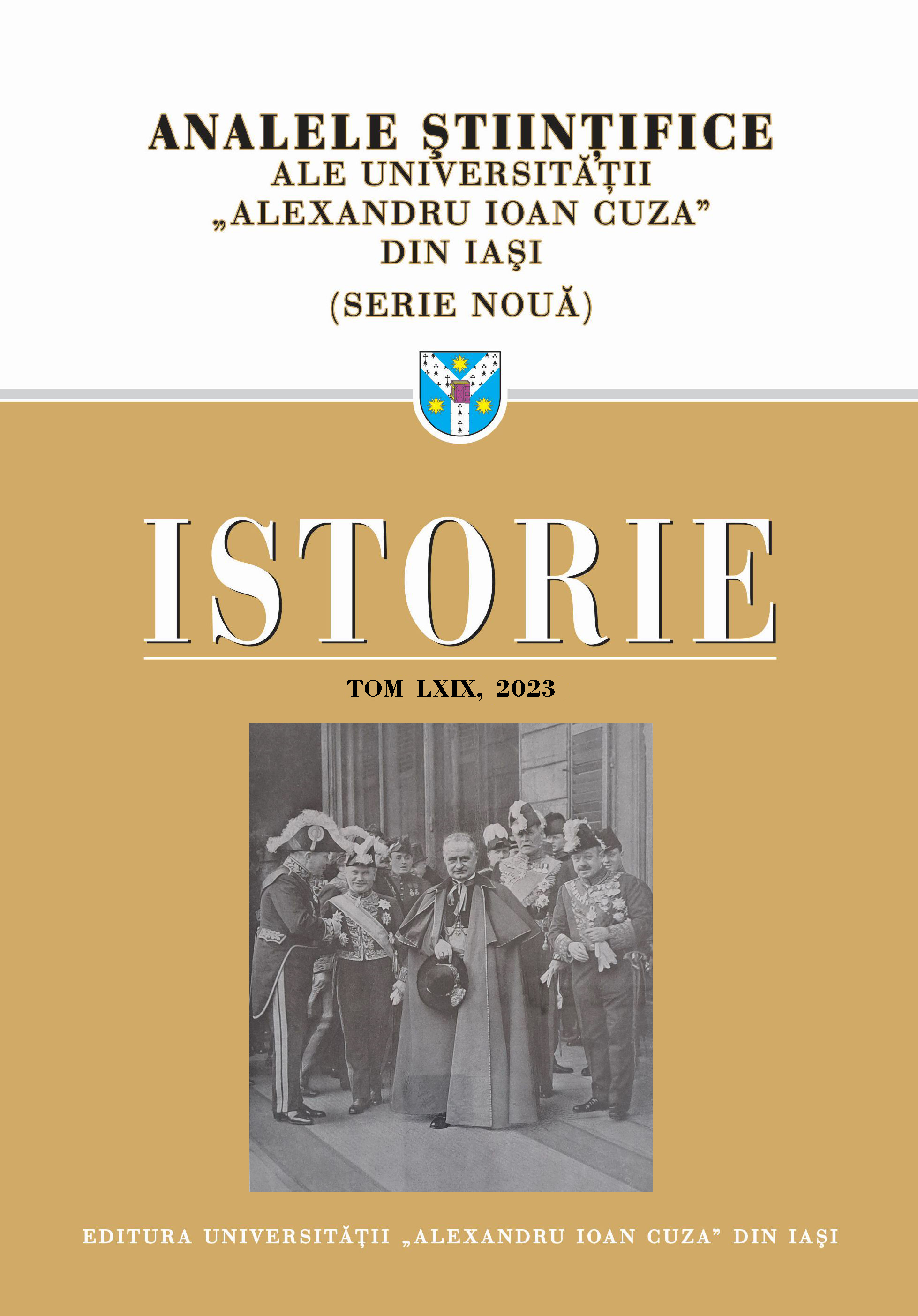Din consecinţele Regulamentului Organic: înfiinţarea Eforiei oraşului Iaşi şi alegerea primilor săi membri
From the consequences of the Organic Regulation: the establishment of the Eforia of Iaşi and the election of its first members
Author(s): Laurențiu RădvanSubject(s): History, Local History / Microhistory, Political history, Social history, 19th Century
Published by: Editura Universităţii »Alexandru Ioan Cuza« din Iaşi
Keywords: : Iaşi; Organic Regulation; city council; Eforia; elections;
Summary/Abstract: In this paper we intend to deal with one of the dimensions of urban reform in the 19th century, the administrative one, with reference to the case of the capital of Moldavia, Iasi. We aimed to highlight the transformations that occurred here in the wake of the adoption of the Organic Regulation and its implementation. This document contains provisions that laid the foundations for a new way of organizing the towns, introducing a first level of autonomy, albeit limited. Even though the Organic Regulation was to enter into force later in Moldavia (from 1 January 1832, as opposed to 1 July 1831 in Wallachia), General Kiseleff also called for the first municipal elections to be held in Iasi at the end of 1831. This marked the beginning of a transitional period, that of the Municipal Council, which functioned between 1 January 1832 and April 1833, with the new institution taking over some of the duties laid down in the Regulation for the better ruling of the city. In the autumn and winter of 1832, a supplementary act to the Organic Regulation was debated, which completed and clarified the structure of the urban administration. The final form of the law was called the „Law for the formation of municipal councils, which would henceforth be called town Eforias, and was published on 24 March 1833. The first elections for the Eforia of Iaşi took place on 11 April 1833 under the coordination of the vornic Iordache Ghica. Of the nearly 500 electors, only about a quarter, 117 voters, understood the importance of the moment and gathered in the hall of the Administrative Council, where a roll call was taken. In addition to Vasile Beldiman, already appointed president of Eforia, Alecu Cantacuzino, Toma Bantăş, Theodor Boţan and Andrei Vizadidis (Vizanti) were elected for a one-year term. From this moment on, we see the extraordinary transformation introduced by the Organic Regulation, practiced in the previous years of the Russian occupation, namely the bureaucratization of the administrative act. In fact, we are dealing with a bureaucratisation of the state, through the creation of modern institutions, which includes Eforia. From now on, every decision and every act will follow an increasingly clear administrative route, although the new system does not impose the concept of efficiency. The definitive transition is now taking place from anaphora to report, from council to Eforia, and then to City Hall, the period we have analysed being decisive in imposing this process.
Journal: Analele Ştiinţifice ale Universităţii »Alexandru Ioan Cuza« din Iaşi. Istorie
- Issue Year: 2023
- Issue No: 69
- Page Range: 139-155
- Page Count: 17
- Language: Romanian

